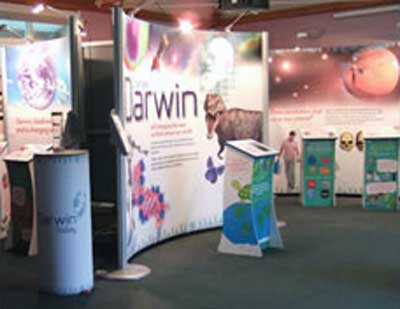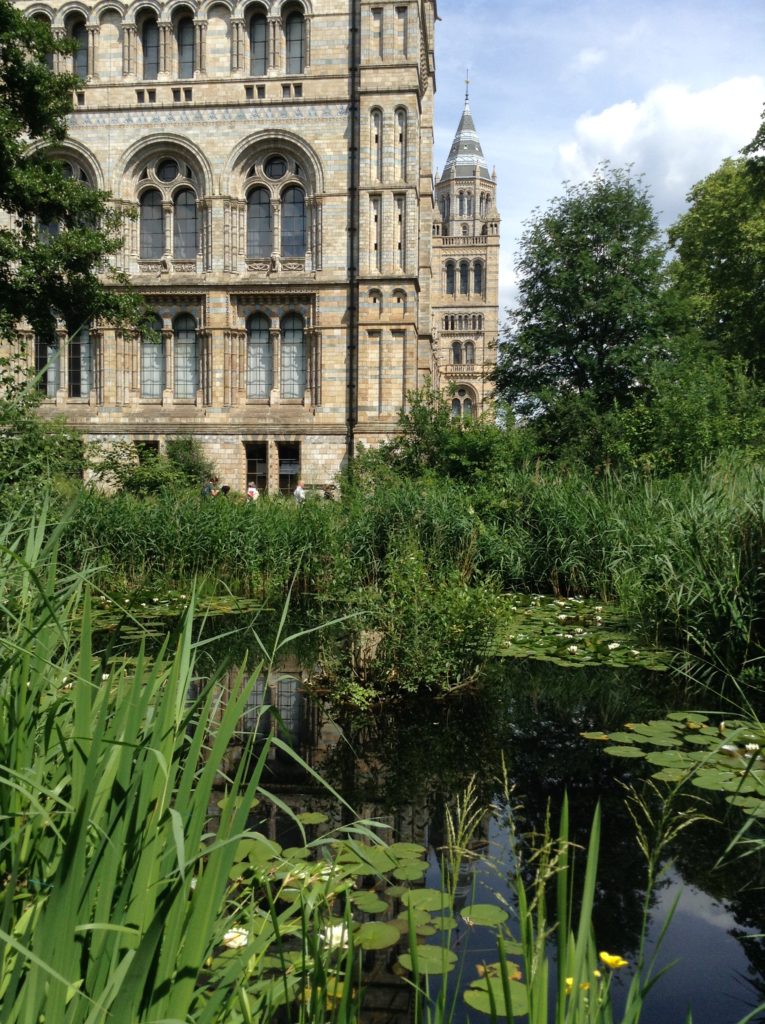Darwin Today exhibition on tour
- Complaining about the Mainland - 17th August, 2024
- New island designation – is it just greenwash? - 26th April, 2024
- Police and Crime Commissioners – a solution or a problem? - 21st April, 2024
Guest review by Rowan Adams Fancy something educational and worthy? Or would you prefer fun and silly, or thought-provoking and stimulating? The Darwin Today exhibition touring the country offers a bit of all of the above.

Like the Ranger himself, I live on the Isle of Wight, so I went to see the exhibition at the jewel in the Island’s crown, Ventnor Botanic Garden. For any Naturenet readers who live on the Isle of Wight, or any of you poor unfortunates who live somewhere less gorgeous but who might be tempted to visit, there are more Darwin-related events listed in the Council’s summer walks leaflet. It’s a small exhibition, and there’s no way that it can do justice to all of Darwin’s work. The exhibition ‘is led by the Biotechnology and Biological Sciences Research Council on behalf of the UK Research Councils’, and its aim is to raise ‘awareness of the importance of Darwin’s theory of evolution by natural selection, in current research and innovation across many disciplines.’ So the focus is on natural selection, which is fair enough in this anniversary year, 150 years since the Origin of Species was published. But this means there isn’t room for any of Darwin’s many other contributions to biology and geology, or on the rest of his life. More disappointing though is that there isn’t an extensive display on the evidence and logical reasoning of Darwin’s breakthrough idea, which is a pity since his arguments were unbelievably thorough, subtle and fascinating. (Though you can read the Origin of Species and all of Darwin’s work online.) Worse still – and something I’m sure Darwin would have felt was wrong – there’s no mention of Alfred Russel Wallace. When Wallace read Malthus’s Essay on the Principle of Population, just as Darwin had been he was ‘overwhelmed by the instant recognition that comes to a prepared mind’ (to quote one of Darwin’s biographers, Janet Browne) and realized that survival of the fittest would cause species to change. Other people will probably disagree with me, but I was also depressed by the ‘Evolving society’ section which says that ‘Leader-follower relationships almost always emerge when groups of people interact…’ I’m not saying that Darwin didn’t have some conservative views – he did – but he also had many radical ones (and Wallace was almost entirely radical). But by including only this one attempt to apply the insights of natural selection to society, the Darwin Today exhibition implies that biology makes inequality inevitable, or that Darwin was an apologist for inequality. This is ironic in the year that Adrian Desmond and James Moore’s book Darwin’s Sacred Cause: Race, Slavery and the Quest for Human Origins“>Darwin’s Sacred Cause: Race, Slavery and the Quest for Human Origins was published. They convincingly argue that Darwin’s ‘sacred cause’, his commitment to the abolition of slavery, included at its core a belief in human racial unity, and that this motivated him to research the common origin not just of all human beings but of all life.

However, despite these few reservations, I still recommend the Darwin Today exhibition. There’s fun in the interactive computer games, including one in which you try to behave like a successful plant, choosing how many leaves and roots to grow, how many leaves to open, when to grow flowers… get it wrong, and you’re declared extinct. As a botany graduate I thought I could lick this one easily, but after half an hour I was still enjoying the challenge of trying to improve my survival rate. The displays, and the excellent set of five A4 handouts to go with them, are admirably clear and succinct. The subjects covered include natural selection itself, Mendel’s discoveries, and more recent work on DNA; biodiversity and climate change; the parallels between the evolution of species and languages; human evolution; the chance of life existing elsewhere in the universe; and applying biology to breed better food crops and fight pests and diseases. And now that I’ve written all the serious stuff, I have to fess up. The best bit of the Darwin Today exhibition, from my five-year-old-trapped-in-a-50-year-old’s-body perspective, is the computer game which lets you create your own monster (play online here!). Choose eyes, ears, nose and mouth… then ‘Press to release into the WILD!‘

